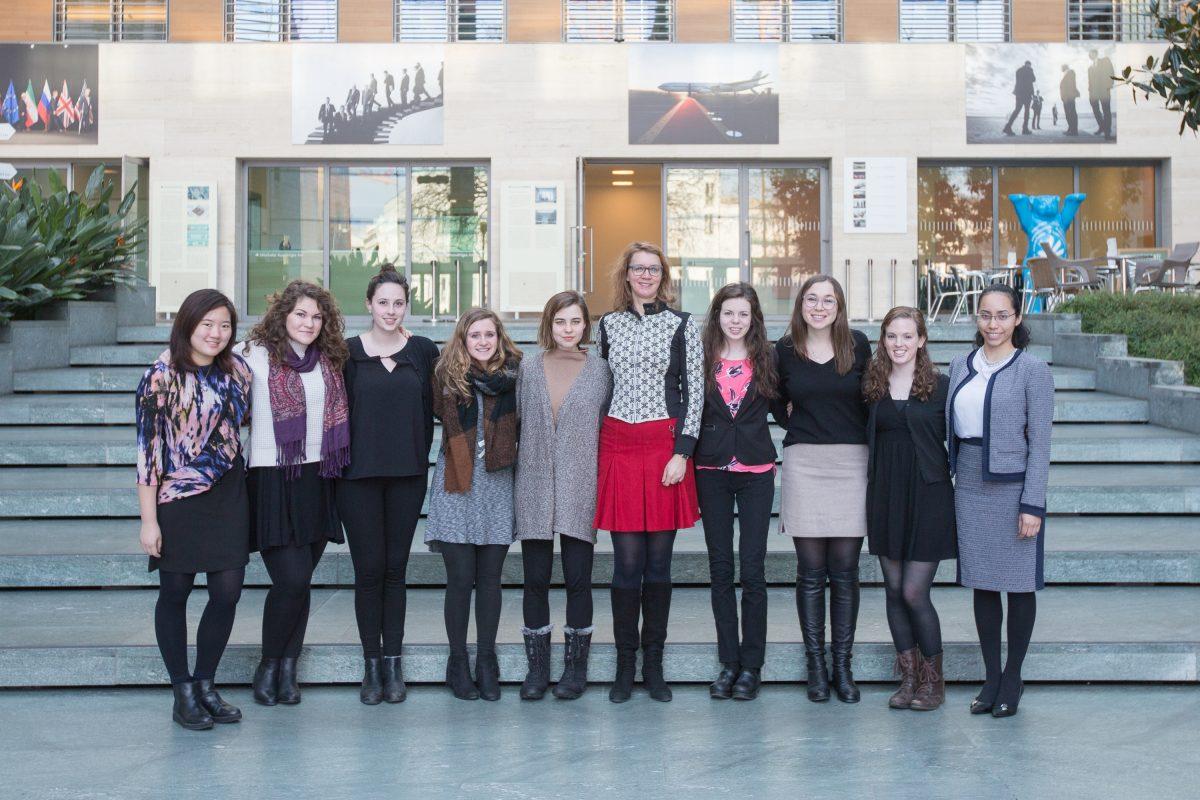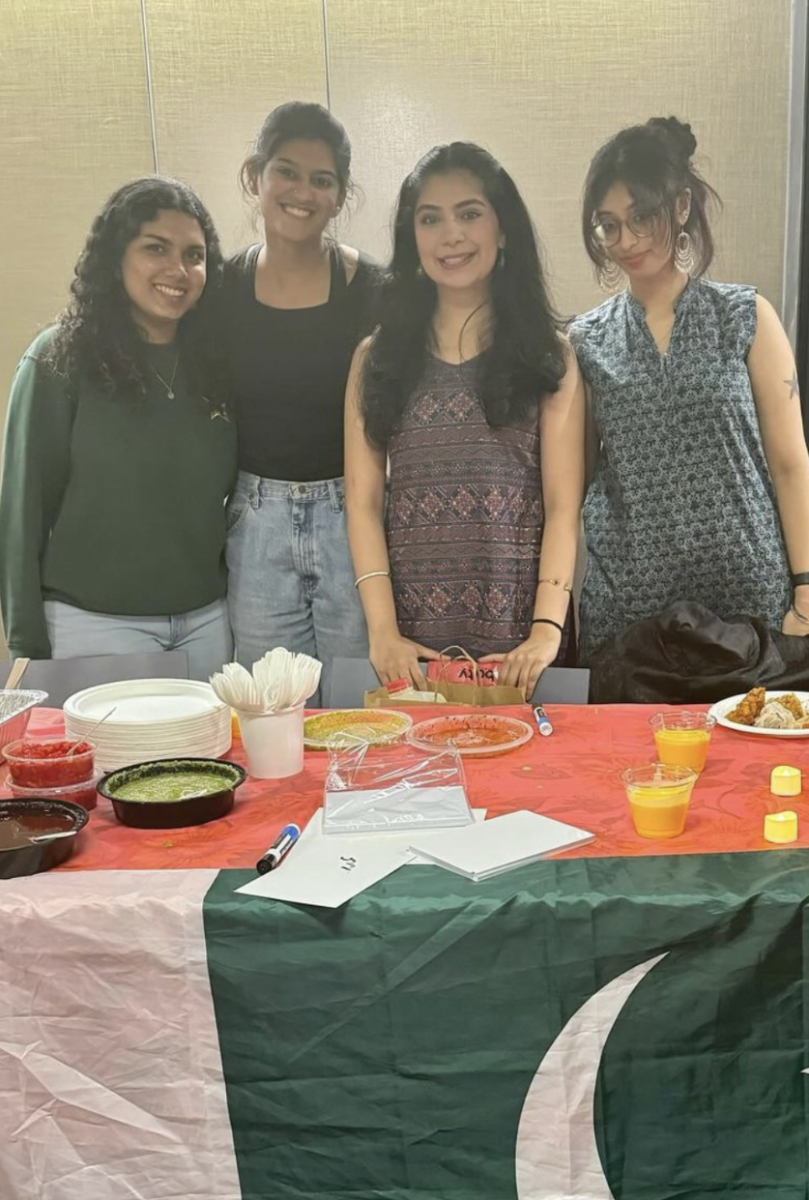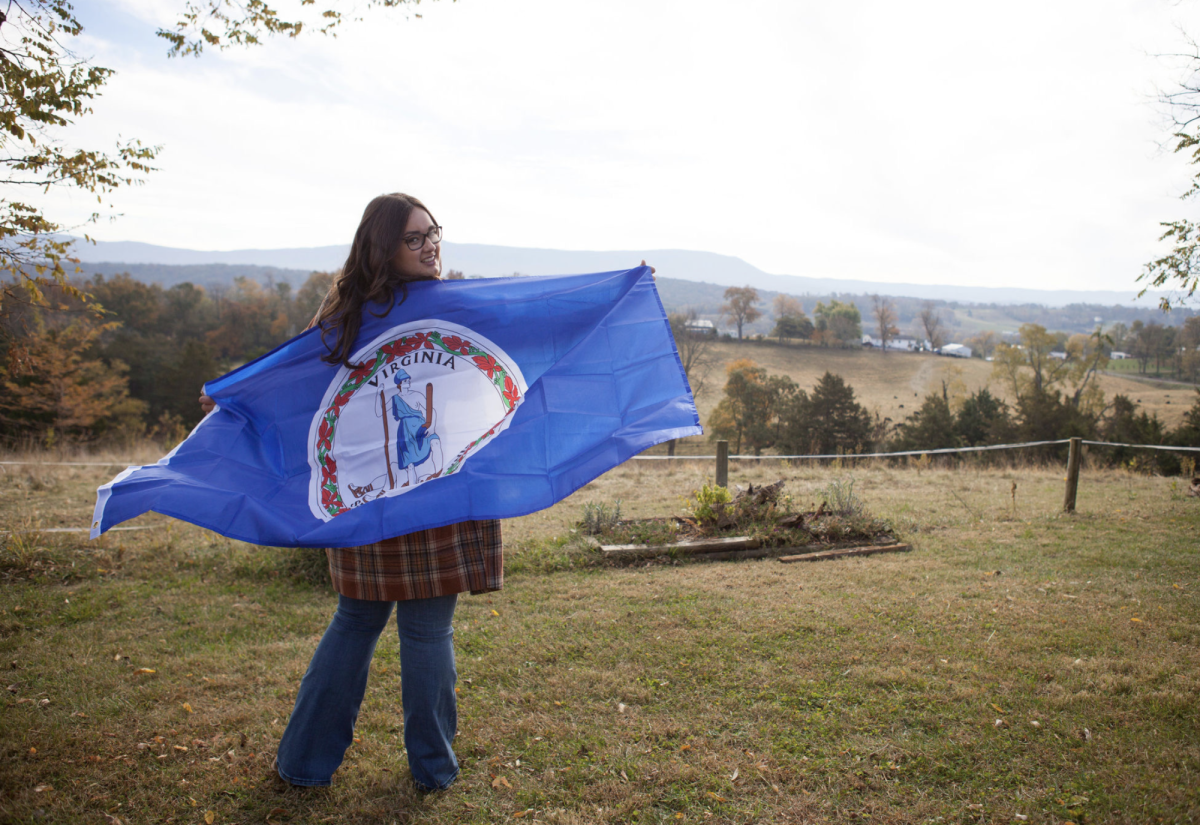Over winter break, seven students from Wellesley College and three students from Brandeis University and Boston University participated in a Holocaust service-learning trip to Berlin with the organization Together, Restoring their Names. During the six-day trip, students visited sites rich with Jewish history. These included the Memorial to Murdered Jews in Europe, the Jewish Museum, the site of the Rosenstrasse protest and the Ravensbrück Concentration Camp.
Unlike most organizations that share the goal of educating people on the Holocaust, Together, Restoring their Names is open to both Jewish and non-Jewish students. “We have taken students of all religious and academic backgrounds,” said Matt Lebovic, the associate director of campus services at Combined Jewish Philanthropies. Lebovic organized this year’s trip with a focus on women’s studies.
Lebovic, the grandson of Holocaust survivors, also accompanied the students to Berlin. He wanted the opportunity to be accessible to everyone and because of this, the trip was completely free of charge. The program aimed to give students a full picture of what it was like to be Jewish in Berlin during the Holocaust.
Together, Restoring their Names is also unique in that the students had an active role in their learning. Rather than just going from site to site, they contributed to the ongoing conversation about the restoration of Jewish communities in Berlin, and the necessity of continuing to confront the consequences of the Holocaust today.
In addition to learning about Jewish history, the students met with Israeli and German diplomats to discuss the rising anti-Semitism in Europe, listened to the stories of German refugees and immigrants and visited the Israeli Embassy. They also met with the founder of the Muslim-Jewish Conference and discussed the relationship between the two religious groups.
For Franzi Ross ’17, what most stood out were the efforts that the German government put forth to promote Holocaust education. “Our tour guides were people who dedicated their lives to Holocaust memory work. It’s really commendable, in comparison to what American government does after the atrocious things this country has done,” Ross said.
Last year, Lebovic organized a similar Holocaust service-learning trip to Poland, which was the pilot program for Together, Restoring their Names. Several students who went on the Poland trip decided to go to Germany as well. Last year, the trip’s theme was “memory work.” This year, the students focused on bringing to life the forgotten stories of women who died in the Holocaust.
In order to prepare for the trip, students did some assigned reading on this topic. For example, they read excerpts from the book Different Horrors/Same Hell: Gender and the Holocaust, which is a compilation of essays that examine women’s roles during and after the Holocaust.
Oftentimes, women’s voices are left out of the narrative of the Holocaust, either because they were overlooked or because they were afraid to speak out. The students involved with Together, Restoring their Names hoped to make these voices heard by researching and publishing their buried stories to social media.
Their dedication to the memory of the Holocaust did not end upon their return to the United States. On Feb. 1, the students hosted a dinner event at the Houghton Chapel and Multifaith Center, in which each student presented a short slideshow and shared what they had learned, how it had impacted them personally and how they internalized what they saw.
Presentation topics ranged from antiSemitic propaganda distributed by Nazi Germany, to the artwork produced in the all women’s Ravensbrück concentration camp, to analyzing the ways in which non-Jewish people could deepen their understanding of the Holocaust.
Arianna Regalado ’18 participated in both the trip to Poland at the end of 2015 and the trip to Germany in 2017. She had never met a Jewish person before coming to Wellesley and had never studied the Holocaust in-depth before participating in the 2015 trip to Poland. “I found myself trying to conceptualize someone else’s tragedy,” Regalado said in her presentation. Ultimately, though, she found she was able to feel a deep empathy with people whose lives were affected by the Holocaust.
At the end of the students’ presentations, Consul General of Germany to New England, Ralf Horlemann, gave a short speech congratulating the group of students. He urged them to stand up whenever they saw injustice, especially in light of the crisis in Syria, and he encouraged them to continue to reflect on and discuss the trip with other students on their college campuses.
The students will also give a presentation at the Ruhlman Conference at Wellesley on April 26. Several of them have already published articles about the trip, and all of them continue to reflect on what they learned, vowing to never forget the impact of the Holocaust.
“Everyone must recognize the Holocaust as a part of our collective human history, a history that must be confronted continuously lest we forget,” Regalado said.






